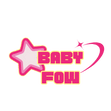Baby Food Without Sugar
Feeding your baby nutritious and safe food is one of the top priorities for any parent. One of the key concerns is avoiding added sugars in your baby’s diet. This article will explore why avoiding sugar is essential, how to identify hidden sugars, and provide recipes and tips for making delicious and healthy baby food without sugar.
Why Avoid Sugar in Baby Food?
Health Concerns
Introducing sugar into your baby’s diet at an early stage can have several health implications. Here are a few reasons to avoid it:
- Risk of Obesity: High sugar intake is linked to childhood obesity, which can lead to various health problems like diabetes and heart disease later in life.
- Dental Issues: Sugar can cause tooth decay even before your baby’s teeth fully develop.
- Poor Nutrient Intake: Foods high in sugar often lack essential nutrients. Babies need nutrient-rich foods to support their rapid growth and development.
Developing Healthy Habits
Early exposure to sugary foods can shape your baby’s food preferences, leading to unhealthy eating habits. By avoiding sugar, you can help your baby develop a taste for natural, wholesome foods.
Identifying Hidden Sugars
Reading Labels
Sugar can be sneaky. It’s often hidden in foods you might not expect. Here’s how to spot it:
- Ingredients to Watch Out For: Look for words like sucrose, high fructose corn syrup, maltose, dextrose, and fruit juice concentrates. These are all forms of sugar.
- Nutrition Facts: Check the amount of sugar listed on the nutrition label. Even natural products like fruit purees can contain high levels of sugar.
Common Foods with Hidden Sugars
- Packaged Baby Foods: Many commercial baby foods contain added sugars. Always read labels carefully.
- Juices and Drinks: Even natural fruit juices can be high in sugar. It’s better to stick with water or diluted juices.
- Snacks and Cereals: Many baby snacks and cereals are loaded with sugar. Opt for plain versions and add natural sweetness with fruits.

Making Your Own Baby Food
Benefits of Homemade Baby Food
Making your own baby food ensures you know exactly what’s in it. Here are some benefits:
- Control Over Ingredients: You can choose fresh, organic ingredients and avoid any additives.
- Cost-Effective: Homemade baby food is often cheaper than store-bought options.
- Customizable: You can tailor recipes to your baby’s taste and nutritional needs.
Essential Tools
Here are some tools you might need:
- Blender or Food Processor: For pureeing fruits and vegetables.
- Steamer: To cook vegetables while retaining their nutrients.
- Storage Containers: To keep portions fresh and ready to serve.
Sugar-Free Baby Food Recipes
Pureed Fruits and Vegetables
Apple and Carrot Puree
Ingredients:
- 1 apple, peeled and chopped
- 1 carrot, peeled and chopped
Instructions:
- Steam the apple and carrot until soft.
- Blend until smooth.
- Let it cool before serving.
Sweet Potato and Pea Mash
Ingredients:
- 1 sweet potato, peeled and chopped
- 1/2 cup peas
Instructions:
- Steam the sweet potato and peas until soft.
- Blend until smooth.
- Let it cool before serving.
Protein-Packed Meals
Chicken and Vegetable Puree
Ingredients:
- 1 small chicken breast, cooked and chopped
- 1 carrot, peeled and chopped
- 1/2 cup spinach
Instructions:
- Steam the carrot and spinach until soft.
- Blend the chicken with the vegetables until smooth.
- Let it cool before serving.
READ MORE :
Why do babies sleep with their arms up
Lentil and Rice Mash
Ingredients:
- 1/2 cup cooked lentils
- 1/2 cup cooked brown rice
- 1/2 cup steamed carrots
Instructions:
- Blend all ingredients until smooth.
- Let it cool before serving.
Creative Combinations
Banana and Avocado Mix
Ingredients:
- 1 ripe banana
- 1/2 ripe avocado
Instructions:
- Mash the banana and avocado together until smooth.
- Serve immediately.
Oatmeal and Pear Puree
Ingredients:
- 1/2 cup cooked oatmeal
- 1 ripe pear, peeled and chopped
Instructions:
- Blend the oatmeal and pear until smooth.
- Let it cool before serving.
Additional Recipes
Apple and Blueberry Puree
Ingredients:
- 1 apple, peeled and chopped
- 1/2 cup blueberries
Instructions:
- Steam the apple and blueberries until soft.
- Blend until smooth.
- Let it cool before serving.
Zucchini and Potato Mash
Ingredients:
- 1 zucchini, peeled and chopped
- 1 potato, peeled and chopped
Instructions:
- Steam the zucchini and potato until soft.
- Blend until smooth.
- Let it cool before serving.
Tips for Feeding Your Baby
Introducing New Foods
- One at a Time: Introduce new foods one at a time to monitor for allergies.
- Be Patient: It can take several attempts for a baby to accept a new food.
- Mix It Up: Combine new foods with familiar ones to make them more appealing.
Avoiding Choking Hazards
- Texture Matters: Ensure the food is appropriately pureed or mashed based on your baby’s age.
- Small Pieces: Cut foods into small, manageable pieces to prevent choking.
Staying Organized
- Meal Prep: Prepare batches of baby food and store them in small portions.
- Label and Date: Always label and date your storage containers to keep track of freshness.
Common Concerns and Solutions
Picky Eaters
Some babies might be picky about certain foods. Here’s how to deal with it:
- Variety is Key: Offer a wide range of foods to ensure balanced nutrition.
- Stay Positive: Encourage and praise your baby when they try new foods.
- Lead by Example: Eat healthy foods yourself to set a good example.
Allergies
Always be cautious about food allergies:
- Start Simple: Introduce single-ingredient foods first.
- Watch for Reactions: Monitor your baby for any allergic reactions, such as rashes or digestive issues.
- Consult a Pediatrician: If you suspect an allergy, consult your pediatrician for advice.
Nutritional Information
Table: Nutritional Benefits of Common Baby Foods
| Food | Nutrients | Benefits |
|---|---|---|
| Apple | Vitamins A, C, Fiber | Supports immune system, digestion |
| Carrot | Vitamins A, K, Fiber | Good for vision, growth |
| Sweet Potato | Vitamins A, C, Fiber | Supports immune system, digestion |
| Peas | Vitamins A, C, K, Protein, Fiber | Supports growth, immune function |
| Chicken | Protein, B vitamins | Builds muscle, supports growth |
| Lentils | Protein, Iron, Fiber | Supports blood health, digestion |
| Banana | Vitamins B6, C, Potassium | Good for heart health, digestion |
| Avocado | Healthy fats, Vitamins E, C, B6, K | Supports brain health, growth |
| Oatmeal | Fiber, Iron, B vitamins | Good for energy, digestion |
| Pear | Vitamins C, K, Fiber | Supports immune system, digestion |
Sample Feeding Schedule
6-8 Months
- Breakfast: Oatmeal and Pear Puree
- Mid-Morning Snack: Banana and Avocado Mix
- Lunch: Sweet Potato and Pea Mash
- Afternoon Snack: Apple and Blueberry Puree
- Dinner: Chicken and Vegetable Puree
9-12 Months
- Breakfast: Apple and Carrot Puree
- Mid-Morning Snack: Zucchini and Potato Mash
- Lunch: Lentil and Rice Mash
- Afternoon Snack: Banana and Avocado Mix
- Dinner: Chicken and Vegetable Puree
Conclusion
Feeding your baby without sugar is a wonderful step towards ensuring their health and well-being. By making informed choices and preparing homemade meals, you can provide your baby with nutritious, delicious food that supports their growth and development. Remember, the key is to keep it simple, natural, and varied. Enjoy the journey of introducing your baby to the world of wholesome, sugar-free foods!
Additional Resources
- Books: “The Big Book of Organic Baby Food” by Stephanie Middleberg
- Websites: HealthyChildren.org, BabyCenter
- Apps: “Baby Food Recipes” app for easy recipe ideas
Remember, when it comes to feeding your baby, natural is best. Avoiding sugar doesn’t mean sacrificing taste. With a little creativity and effort, you can prepare meals that are both nutritious and delicious, setting your baby on a path to a healthy and happy life.









Pingback: Baby Hair Color Predictor - Babyfow.com